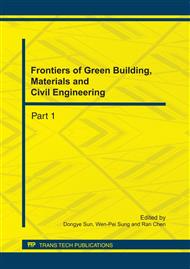p.4554
p.4558
p.4564
p.4568
p.4572
p.4576
p.4580
p.4585
p.4590
The Multi-Objective Approach Toward Landscape Conservation Planning of City River
Abstract:
In the course of city operation and development, the normal state of the river environment encounters hazard of varying degrees, which is manifested in the ecological degradation, functional disorder, and cultural deficiencies. The author elaborated the synergestic effect of Multi-objective Approach (MOA) in the overll improvement of the urban water systems in terms of the ecological restoration, mutiple functions and cultural effecacy. Based on the study of the landscape planning of the open space of the Guohe River in Bozhou City, which made the comprehensive analysis from an ecological, functional, and cultural perspectives and employed the multi-objective landscape remediation and conservation design, we explore the landscape planning methods of the urban waterfront which incorporate the ecology, function and culture of the region to be designed.
Info:
Periodical:
Pages:
4572-4575
Citation:
Online since:
July 2011
Authors:
Price:
Сopyright:
© 2011 Trans Tech Publications Ltd. All Rights Reserved
Share:
Citation:


